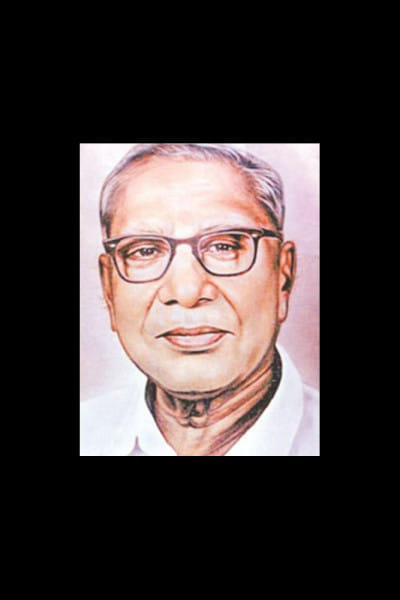A legend in philanthropy

A poor man became millionaire, and the millionaire voluntarily became poor again. He spent all he had -- for the service of humanity, for the sufferers and the distressed, for the furtherance of education, for rendering a service to the state, which the state itself has not undertaken.
Having given all his worldly possessions, he had set an example which hardly finds any parallel. He is none other than the legendary philanthropist Rai Bahadur Ranada Prasad Shaha.
The social worker and promoter of education is known to all as RP Shaha. He was born in Kachhoir under Shimulia union of Savar upazila on November 15, 1896 at his maternal uncle's home.
He was the second child of Debendranath Podder, a deed-writer, and Kumudini Devi. RP Shaha lost his mother when he was only seven years old. He then had to bring an end to his school education after passing class III.
Being neglected by his step mother, RP Shaha went to Kolkata in search of a new life. He then had to work hard as a day labourer, rickshaw-puller and hawker to earn his bread.
Later he got involved in the anti-British movement—Swadeshi Movement—for which he also had to pass a few days in prison.
He joined the British Indian Army like other hundreds of thousands of Indian youth when the World War 1 kicked off on July 28, 1914. He was posted in the Bengal Ambulance Corps.
He left Kolkata on June 26, 1915 for Mesopotamia. There he earned a medal and citation from King George the Fifth for his distinctive performance.
He also received a “Sword of Honour” for saving some British officers from fire in the camp. After serving for about five years, RP Shaha retired from the army and joined British Railway as a ticket collector and served there until 1931.
In 1932, with the retirement money, he started his coal business. He had to deliver coal himself to the doorsteps of every buyer's house. Finding the coal business more profitable, he gave up doing self trading.
He also acquired a dealership for coal business in Kolkata. It took only four years for him to establish himself as a well-established coal businessman in Kolkata and earn immense wealth.
This success helped him extend his business in diversified sectors, including passenger launch, river transport, dockyard, food grain and jute. In 1942, his yearly turnover stood at around Tk 40 lakh.
After gaining so much in his life, he felt how a little thing can make a big difference. From the agony for his mother, he planned devoting his wealth for something good to the society.
In 1938, he laid the foundation stone of the 750-bed Kumudini Hospital, which was named after his mother, and launched the Shova Shundari Dispensary in the memory of his grandmother.
He mainly focused on women empowerment by providing them with health and educational services.
This was the beginning of his philanthropy. The Kumudini Hospital was the largest hospital in Bangladesh then.
He also established Bharateswari Homes, Kumudini Nursing School, Kumudini Nursing College, Debendra College, Kumudini College and contributed to many schools, colleges and hospitals in the country.
Most remarkably, he established Kumudini Welfare Trust of Bengal in 1944, which is a unique organisation, where all the money comes from his revenue generating companies to run the charitable activities of the trust.
But unfortunately during the liberation war in 1971, the legendary entrepreneur, social leader, and philanthropist was kidnapped along with his son Vabani Prasad Shaha by the brutal Pakistani military. Since then they remain traceless.
However, Kumudini Welfare Trust of Bengal has been successfully operating more than a dozen companies and half a dozen other charitable organisations to create a positive change in the society.
The young generation nowadays loves to become an entrepreneur in Bangladesh. The youngsters who want to be entrepreneurs should remember and follow the values and social commitment of RP Shaha, the person who became rich with his hard work and sacrificed everything for the well-being of the society.
The authors are students of the Department of Entrepreneurship at Daffodil International University.

 For all latest news, follow The Daily Star's Google News channel.
For all latest news, follow The Daily Star's Google News channel. 



Comments